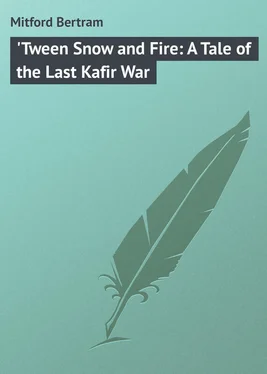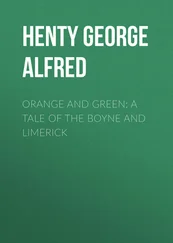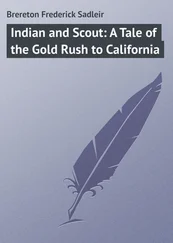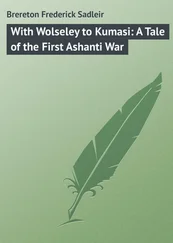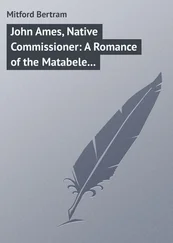Bertram Mitford - 'Tween Snow and Fire - A Tale of the Last Kafir War
Здесь есть возможность читать онлайн «Bertram Mitford - 'Tween Snow and Fire - A Tale of the Last Kafir War» — ознакомительный отрывок электронной книги совершенно бесплатно, а после прочтения отрывка купить полную версию. В некоторых случаях можно слушать аудио, скачать через торрент в формате fb2 и присутствует краткое содержание. Издательство: Иностранный паблик, Жанр: foreign_prose, на английском языке. Описание произведения, (предисловие) а так же отзывы посетителей доступны на портале библиотеки ЛибКат.
- Название:'Tween Snow and Fire: A Tale of the Last Kafir War
- Автор:
- Издательство:Иностранный паблик
- Жанр:
- Год:неизвестен
- ISBN:нет данных
- Рейтинг книги:5 / 5. Голосов: 1
-
Избранное:Добавить в избранное
- Отзывы:
-
Ваша оценка:
- 100
- 1
- 2
- 3
- 4
- 5
'Tween Snow and Fire: A Tale of the Last Kafir War: краткое содержание, описание и аннотация
Предлагаем к чтению аннотацию, описание, краткое содержание или предисловие (зависит от того, что написал сам автор книги «'Tween Snow and Fire: A Tale of the Last Kafir War»). Если вы не нашли необходимую информацию о книге — напишите в комментариях, мы постараемся отыскать её.
'Tween Snow and Fire: A Tale of the Last Kafir War — читать онлайн ознакомительный отрывок
Ниже представлен текст книги, разбитый по страницам. Система сохранения места последней прочитанной страницы, позволяет с удобством читать онлайн бесплатно книгу «'Tween Snow and Fire: A Tale of the Last Kafir War», без необходимости каждый раз заново искать на чём Вы остановились. Поставьте закладку, и сможете в любой момент перейти на страницу, на которой закончили чтение.
Интервал:
Закладка:
“Now hear my words, you whom the people call Umlilwane. I know you, even though you do not know me – better for you if you did, for then you would not have wounded the sleeping lion, nor have aroused the anger of the hooded snake, who is swift to strike. Ha! I am Hlangani,” he continued, raising his voice to a perfect roar of menace, and his eyes blazed like live coals as he pointed to the shot wounds in his shoulder, now black and hideous with clotted blood. “I am Hlangani, the son of Ngcesiba, a man of the House of Gcaléka. What man living am I afraid of? Behold me here as I stand. Shoot again, Umlilwane – shoot again, if you dare. Hau ! Hear my ‘word.’ You have slain my dog – my white hunting dog, the last of his breed – who can outrun every other hunting dog in the land, even as the wind outstrippeth the crawling ox-wagon, and you have shed my blood, the blood of a chief. You had better first have cut off your right hand, for it is better to lose a hand than one’s mind . This is my ‘word,’ Umlilwane – bear it in memory, for you have struck a chief – a man of the House of Gcaléka.”
(Umlilwane: “Little Fire” – Kafirs are fond of bestowing nicknames. This one referred to its bearer’s habitually short temper.)
“Damn the House of Gcaléka, anyway,” said Carhayes, with a sneer as the savage, having vented his denunciation, stalked scowlingly away with his compatriots. “Look here, isidenge ,” (fool), he continued. “This is my word. Keep clear of me, for the next time you fall foul of me I’ll shoot you dead. And now, Eustace,” turning to his companion, “we had better load up this buck-meat and carry it home. What on earth is the good of my trying to preserve the game, with a whole location of these black scum not ten miles from my door?” he went on, as he placed the carcase of the unfortunate steinbok on the crupper of his horse.
“No good. No good, whatever, as I am always telling you,” rejoined the other decisively, “Kafir locations and game can’t exist side by side. Doesn’t it ever strike you, Tom, that this game-preserving mania is costing you – costing us, excessively dear.”
“Hang it. I suppose it is,” growled Carhayes. “I’ll clear out, trek to some other part of the country where a fellow isn’t overrun by a lot of worthless, lazy, red Kafirs. I wish to Heaven they’d only start this precious war. I’d take it out of some of their hides. Have some better sport than buck-hunting then, eh?”
“Perhaps. But there may be no war after all. Meanwhile you have won the enmity of every Kafir in Nteya’s and Ncanduku’s locations. I wouldn’t give ten pounds for our two hundred pound pair of breeding ostriches, if it meant leaving them here three days from now, that’s all.”
“Oh, shut up croaking, Eustace,” snarled Carhayes, “And by the way, who the deuce is this sweep Hlangani, and what is he doing on this side of the river anyway?”
“He’s a Gcaléka, as he said, and a petty chief under Kreli; and the Gaikas on this side are sure to take up his quarrel. I know them.”
“H’m. It strikes me you know these black scoundrels rather well, Eustace. What a queer chap you are. Now, I wonder what on earth has made you take such an interest in them of late.”
“So do I. I suppose, though, I find them interesting, especially since I have learned to talk with them pretty easily. And they are interesting. On the whole, I like them.”
Carhayes made no reply, unless an inarticulate growl could be construed as such, and the two men rode on in silence. They were distant cousins, these two, and as regarded their farming operations, partners. Yet never were two men more utterly dissimilar. Carhayes, the older by a matter of ten years, was just on the wrong side of forty – but his powerfully built frame was as tough and vigorous as in the most energetic days of his youth. He was rather a good looking man, but the firm set of his lips beneath the thick, fair beard, and a certain shortness of the neck, set forth his choleric disposition at first glance. The other was slightly the taller of the two, and while lacking the broad, massive proportions of his cousin, was straight, and well set up. But Eustace Milne’s face would have puzzled the keenest character reader. It was a blank. Not that there was aught of stupidity or woodenness stamped thereon. On the contrary, there were moments when it would light up with a rare attractiveness, but its normal expression was of that impassibility which you may see upon the countenance of a priest or a lawyer of intellect and wide experience, whose vocation involves an intimate and profoundly varied acquaintance with human nature in all its chequered lights and shades; rarely, however, upon that of one so young.
From the high ridge on which the two men were riding, the eye could wander at will over the rolling, grassy plains and mimosa-dotted dales of Kaffraria. The pure azure of the heavens was unflecked by a single cloud. The light, balmy air of this early spring day was as invigorating as wine. Far away to the southeast the sweep of undulating grass land melted into an indistinct blue haze – the Indian Ocean – while in the opposite direction the panorama was barred by the hump-like Kabousie Heights, their green slopes alternating with lines of dark forest in a straggling labyrinth of intersecting kloofs. Far away over the golden, sunlit plains, the white walls of a farmhouse or two were discernible, and here and there, rising in a line upon the still atmosphere, a column of grey smoke marked the locality of many a distant kraal lying along the spurs of the hills. So still, so transparent, indeed, was the air that even the voices of their savage inhabitants and the low of cattle floated faintly across the wide and intervening space. Beneath – against the opposite ridge, about half a mile distant, the red ochre on their clothing and persons showing in vivid and pleasing contrast against the green of the hillside, moved ten or a dozen Kafirs – men, women, and children. They stepped out in line at a brisk, elastic pace, and the lazy hum of their conversation drifted to the ears of the two white men so plainly that they could almost catch its burden.
To the younger of these two men the splendid vastness of this magnificent panorama, framing the picturesque figures of its barbarous inhabitants, made up a scene of which he never wearied, for though at present a Kaffrarian stock farmer, he had the mind of a thinker, a philosopher, and a poet. To the elder, however, there was nothing noteworthy or attractive about it. We fear he regarded the beautiful rolling plains as so much better or worse veldt for purposes of stock-feeding, and was apt to resent the continued and unbroken blue of the glorious vault above as likely to lead to an inconvenient scarcity of rain, if not to a positive drought. As for the dozen Kafirs in the foreground, so far from discerning anything poetical or picturesque about them, he looked upon them as just that number of black scoundrels making their way to the nearest canteen to get drunk on the proceeds of the barter of skins flayed from stolen sheep – his own sheep among those of others.
As if to emphasise this last idea, cresting the ridge at that moment, they came in sight of a large, straggling flock. Straggling indeed! In twos and threes, in clumps of a dozen, and in clumps of fifty, the animals, though numbering but eleven hundred, were spread over nearly two miles of veldt . It was the flock in charge of the defaulting and contumacious Goníwe, who, however, having caught a glimpse of the approach of his two masters, might be descried hurriedly collecting his scattered charges. Carhayes ground his teeth.
“I’ll rip his black hide off him. I’ll teach him to let the sheep go to the devil while he hunts our bucks.” And gripping his reins he drove his spurs into his horse’s flanks, with fell intent toward the offending Kafir.
Читать дальшеИнтервал:
Закладка:
Похожие книги на «'Tween Snow and Fire: A Tale of the Last Kafir War»
Представляем Вашему вниманию похожие книги на «'Tween Snow and Fire: A Tale of the Last Kafir War» списком для выбора. Мы отобрали схожую по названию и смыслу литературу в надежде предоставить читателям больше вариантов отыскать новые, интересные, ещё непрочитанные произведения.
Обсуждение, отзывы о книге «'Tween Snow and Fire: A Tale of the Last Kafir War» и просто собственные мнения читателей. Оставьте ваши комментарии, напишите, что Вы думаете о произведении, его смысле или главных героях. Укажите что конкретно понравилось, а что нет, и почему Вы так считаете.
